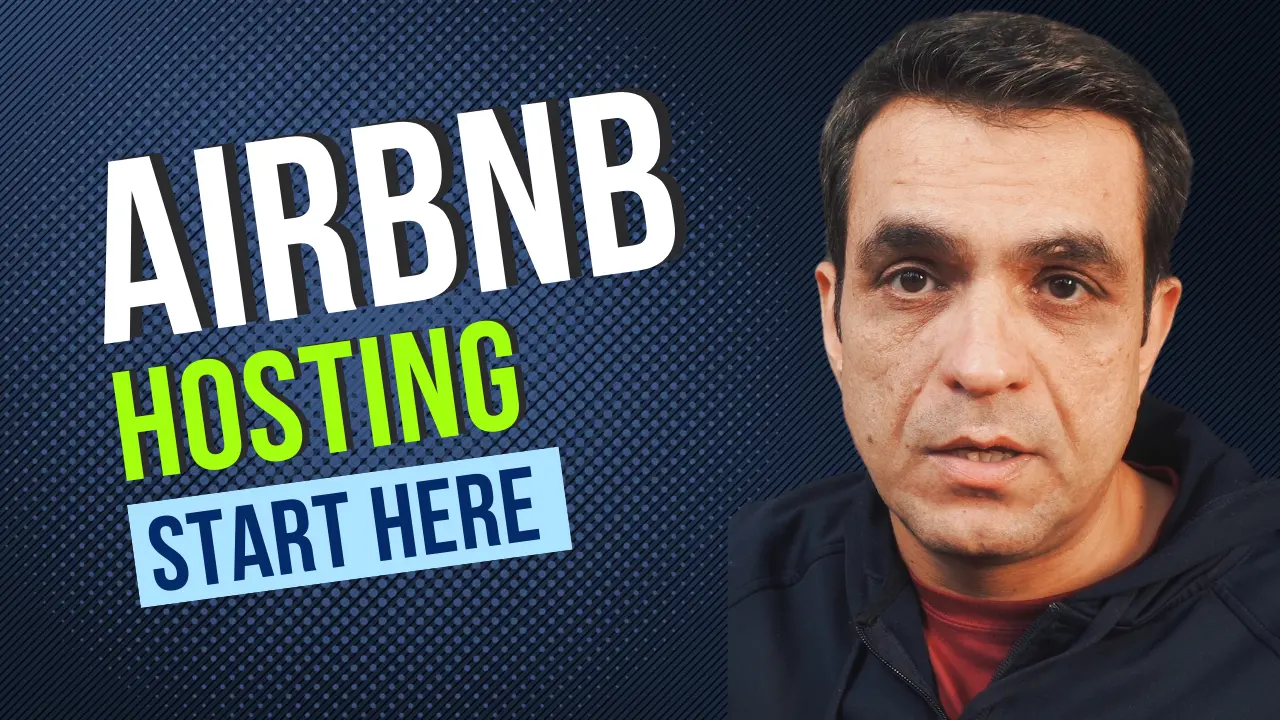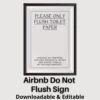
Welcome to the No-nonsense Airbnb guide! If you’re pondering over starting an Airbnb business and a guide on Airbnb hosting for beginners, you’ve landed in the right place.
I’m Prayas Choudhary, an experienced host since 2016, managing over 200 properties globally, and an official Airbnb trainer and ambassador. This post will address your doubts and questions, helping you embark on your Airbnb journey with confidence.
Is My Property Airbnb-Eligible?
Understanding if your property is eligible for Airbnb is crucial. The basic requirement is that the property must be a residential space and safe for living.
However, the eligibility extends beyond this. Local laws and regulations play a significant role. Some areas have specific restrictions on short-term rentals.
To navigate this, Airbnb maintains a comprehensive list of local regulations in the areas they operate. Checking this list is essential to ensure you’re compliant with local laws.
If your area isn’t listed, it usually indicates the absence of restrictions, making your property eligible for Airbnb listing.
Tenants Hosting on Airbnb
As a tenant, the question of whether you need permission from your landlord to rent out your space on Airbnb is a common concern.
While Airbnb doesn’t require proof of ownership or leasing rights, it’s a matter of legal and ethical responsibility to seek your landlord’s consent. Doing so avoids potential legal issues and maintains a good relationship with your landlord.
Managing Personal Belongings
If you plan to rent out your space only occasionally, managing your personal belongings is a question to consider. Many hosts choose to lock away personal items in a specific room or area.
If that’s not feasible, being transparent in your listing about the presence of personal belongings is important. Clear communication about what guests can expect regarding personal items ensures a smooth experience for both you and your guests.
Partially Renting Your Space
Renting out a part of your home while you’re still living in it is a viable option on Airbnb. The key is to clearly specify in your listing which areas are accessible to guests.
Whether it’s a shared kitchen, a private living room, or certain amenities like TV, clear boundaries set in your listing will help manage guest expectations and prevent misunderstandings.
House Rules and Guest Expectations
Setting house rules is an effective way to manage guest behavior. Airbnb encourages hosts to use this feature to outline any specific expectations or restrictions.
By doing so, you can ensure guests are well-informed about your house rules before they book, leading to a more harmonious stay for both parties.
Airbnb Charges for Hosts
Airbnb’s fee structure for hosts is straightforward yet important to understand. They typically charge a 3% commission from hosts and a variable percentage (usually between 12-15%) from guests.
This fee structure is inclusive of all necessary insurances and does not have hidden costs. Understanding this fee breakdown is crucial for hosts to price their listings appropriately and manage their earnings effectively.
Determining Your Property’s Earning Potential
Assessing how much your property can earn on Airbnb depends on several factors, including location, property type, and market demand. While there’s no set formula, a practical approach is to research similar properties in your area on Airbnb.
This gives you an idea of the going rates and can help you set competitive prices. Using tools like AirDNA Market Minder can also provide valuable insights into occupancy rates and popular amenities in your area, aiding in setting a realistic and profitable price point.
Payment Timelines
Understanding when and how you’ll get paid by Airbnb is important for financial planning. Payments are typically released to hosts 24 hours after the guest’s check-in. This delay is designed to protect guests, allowing them to report any significant issues upon arrival.
The initial payment might take longer due to identity verification processes, but subsequent payments usually reach the host’s bank account within a short time after Airbnb releases them.
Choosing Your Guests
Airbnb allows hosts to have control over who stays in their property. This can be managed through the ‘Instant Book’ setting. If you prefer to vet your guests, you can turn off this feature, requiring guests to send booking requests that you can then review and approve or decline.
If you enable ‘Instant Book,’ you can still set additional requirements for guests, such as verified government ID and positive reviews from previous hosts, ensuring a level of screening for potential guests.
Cleaning Practices and Fees
The cleanliness of your Airbnb is paramount. Cleaning is typically done after each guest checks out, and you can charge a cleaning fee for this service. This fee should reflect the actual cleaning costs and not be inflated, as high fees can lead to increased guest expectations.
When determining the cleaning fee, consider the labor costs, cleaning materials, and any additional expenses like laundry services. Keep in mind that Airbnb is considering changes to how cleaning fees are displayed or charged, so staying updated with their policy changes is important.
Handling Property Damages
In the unfortunate event of property damage by a guest, Airbnb’s Aircover offers protection up to $3 million. However, it’s important to document any damages immediately with photographs or videos.
If the issue can’t be resolved directly with the guest, you can use Airbnb’s Resolution Center to request compensation. Remember, this guarantee is not an insurance policy, and there are limitations and exclusions, so having additional insurance for short-term rentals is advisable for comprehensive coverage.
Providing Breakfast: Is It Necessary?
Offering breakfast is not a requirement for Airbnb hosts. While the platform’s name might suggest otherwise, it’s more about providing comfortable accommodation than additional amenities like meals.
For hosts renting out entire properties, guests generally do not expect breakfast to be included. If you choose to offer breakfast, it’s seen as a bonus, but focusing on the quality of accommodation should be the priority.
Essentials for Hosting on Airbnb
Providing a comfortable and convenient stay for your guests involves ensuring a few essentials. Clean bedding, towels, basic toiletries, and WiFi access are a must. Safety features like smoke and carbon monoxide detectors, a fire extinguisher, and a first-aid kit are essential for guest safety.
If you’re offering kitchen access, include basic cooking and eating utensils, along with functional appliances. Extras like a local guidebook, entertainment options, and personal touches can enhance the guest experience. For longer stays, consider providing access to laundry facilities and additional toiletries.
Understanding Airbnb Reviews
The review system on Airbnb plays a crucial role in building your reputation as a host. Both hosts and guests have 14 days to write a review after a stay, ensuring honest feedback. The reviews are mutually blind, meaning neither party can see the other’s review until both are submitted or the 14-day period ends. This fosters unbiased and honest reviews.
As a host, your reviews should cover aspects like the guest’s communication, adherence to house rules, and your overall experience with them. Remember, reviews are public and can significantly impact your future bookings and reputation on the platform.
Achieving Superhost Status
Becoming a Superhost on Airbnb is a recognition of exceptional hosting. To achieve this status, you need to maintain a high overall rating (at least 4.8), host a minimum number of stays or long-term reservations totaling 100 nights in a year, have a low cancellation rate, and maintain a high response rate.
Airbnb evaluates these criteria every three months, so maintaining consistent high-quality service is essential.
Handling Overstaying Guests
Dealing with guests who refuse to leave on their scheduled check-out date can be challenging. Start with a polite reminder about their check-out time. If the issue persists, involve Airbnb’s support team, who can assist in resolving the situation.
It’s important to keep all communications on the Airbnb platform to ensure there’s a record of your interactions.
Individual vs. Company Hosting
Deciding whether to host as an individual or a company depends on the scale of your operations. For most new hosts, starting as an individual is simpler and involves less paperwork.
However, if you expand to multiple properties, setting up a company can offer tax efficiencies. The transition from individual to company hosting can be made anytime based on your business growth and requirements.
Insurance for Airbnb Hosts
While Airbnb’s Aircover provides a basic level of protection, hosts should consider additional insurances. Content insurance covers damages to property contents not caused by guest negligence, such as theft or natural disasters.
Building insurance protects the physical property against similar non-guest related damages. These insurances complement Airbnb’s coverage, providing comprehensive protection for your property.
Finding Cleaners for Your Airbnb
A clean and well-maintained Airbnb is key to guest satisfaction. Finding reliable cleaners can be achieved through local Facebook groups, word of mouth, and online platforms like TaskRabbit or Handy.
Local cleaning companies specializing in short-term rentals are also a good option, as they understand the quick turnaround and high standards required by Airbnb.
Required Safety Equipment
Safety is paramount in hosting. Airbnb recommends having carbon monoxide and fire alarms as a minimum. Adhering to local safety guidelines for short-term rentals is also important. Ensuring your property meets these safety standards is not just for compliance but for the well-being of your guests.
Common Mistakes to Avoid as a New Host
- Overcomplicating the Experience: Keep your hosting simple, especially when starting. Focus on providing a clean, comfortable space rather than unnecessary extras.
- Ignoring Local Laws and Regulations: Ensure you’re aware of and comply with Airbnb rules and local laws applicable to short-term rentals, including safety regulations, taxes, and licensing.
- Inadequate Pricing Strategy: Set realistic prices based on your local market and competition. Use Airbnb’s pricing tools and monitor rates of similar listings in your area.
- Underestimating the Importance of Reviews: Deliver high-quality service and maintain prompt communication to garner positive reviews. Also, actively review your guests to encourage reciprocal feedback.
- Poor Communication with Guests: From booking to check-out, maintain clear and consistent communication. Provide detailed check-in instructions and be responsive to inquiries during their stay.
Conclusion
Starting as an Airbnb host involves navigating various aspects, from understanding platform rules and local regulations to managing guest expectations and ensuring a high-quality stay. By focusing on these key areas
Suggested reading, you may also find my article on VRBO Hosting for Beginners useful.









